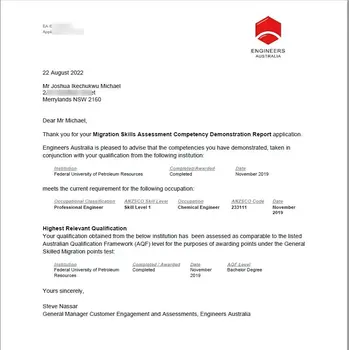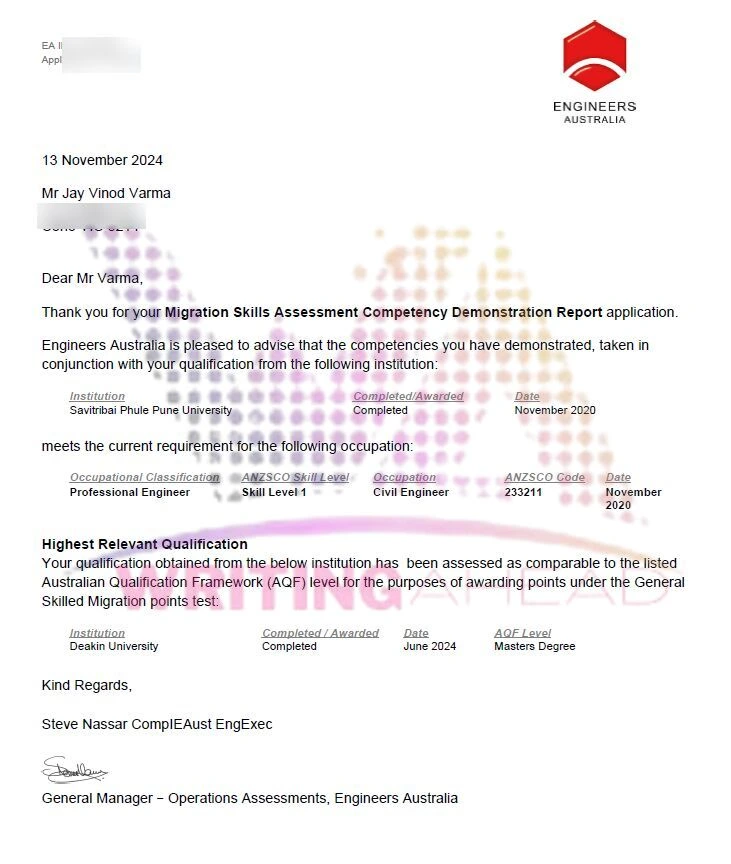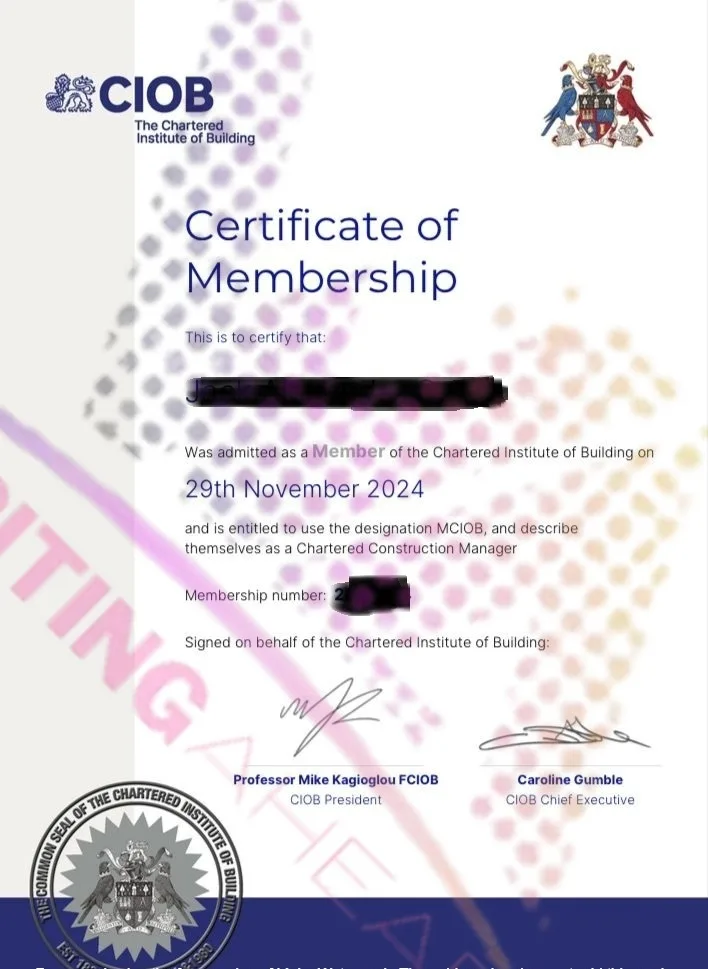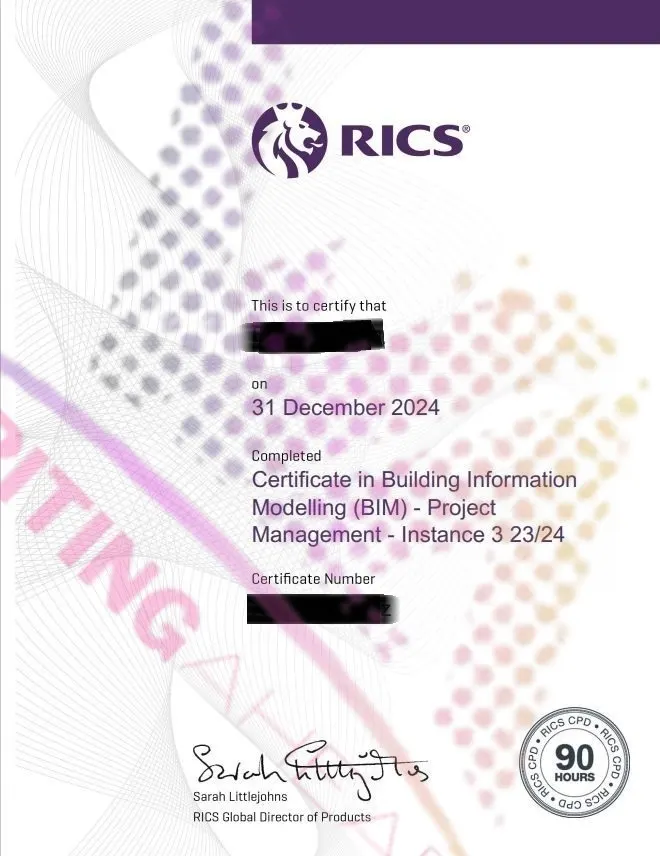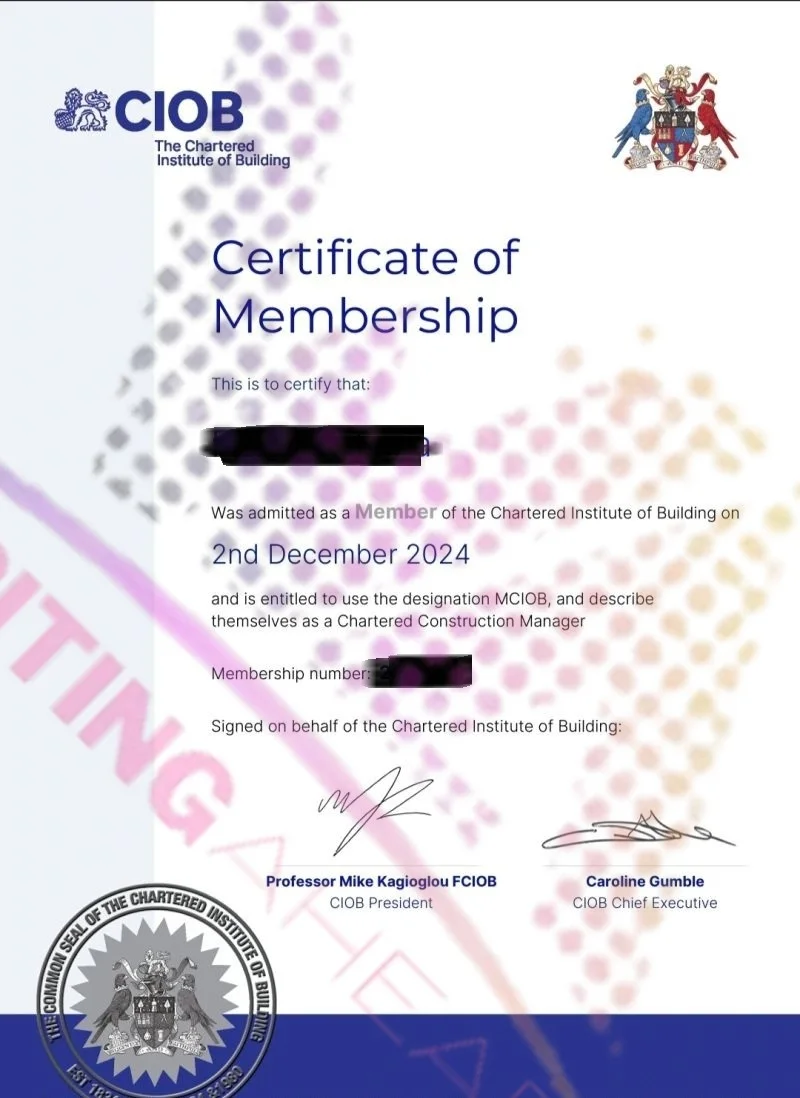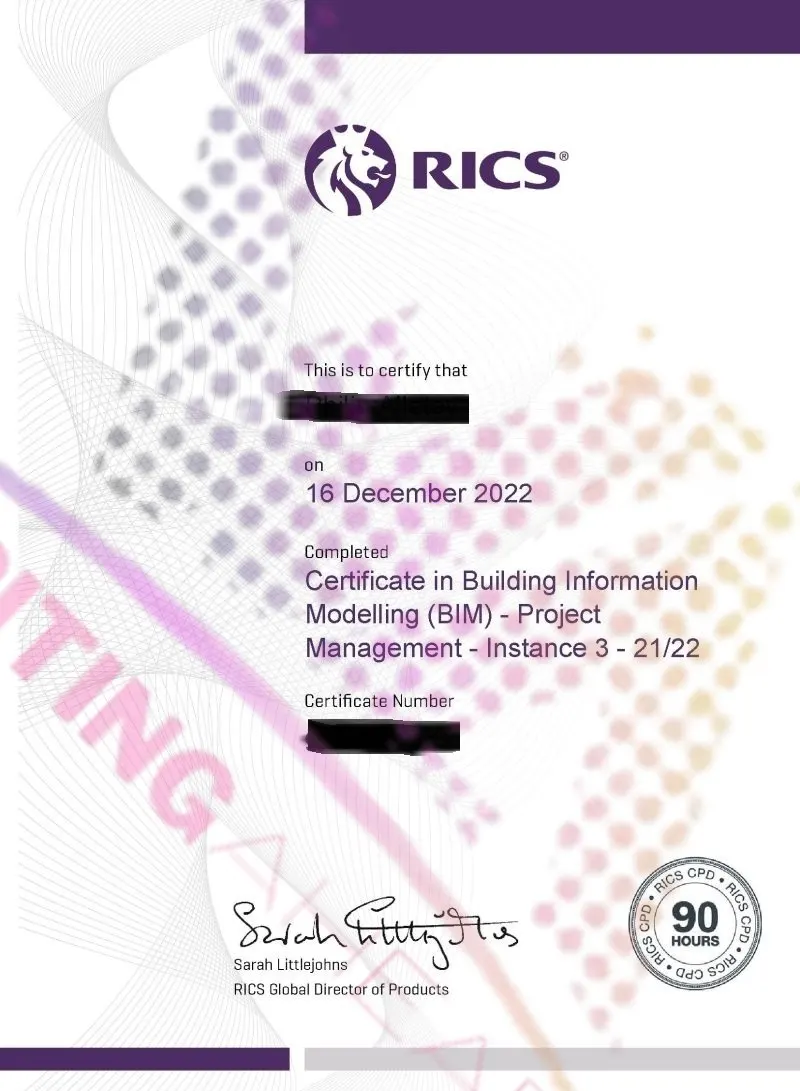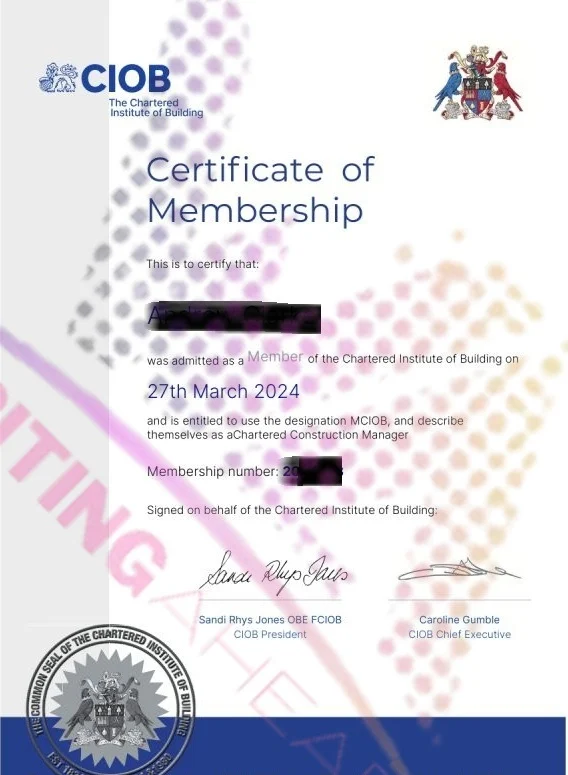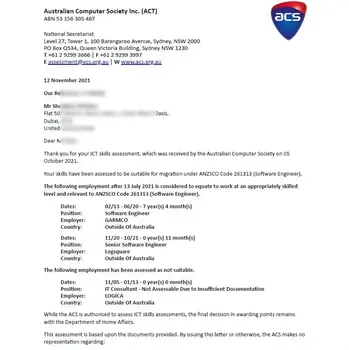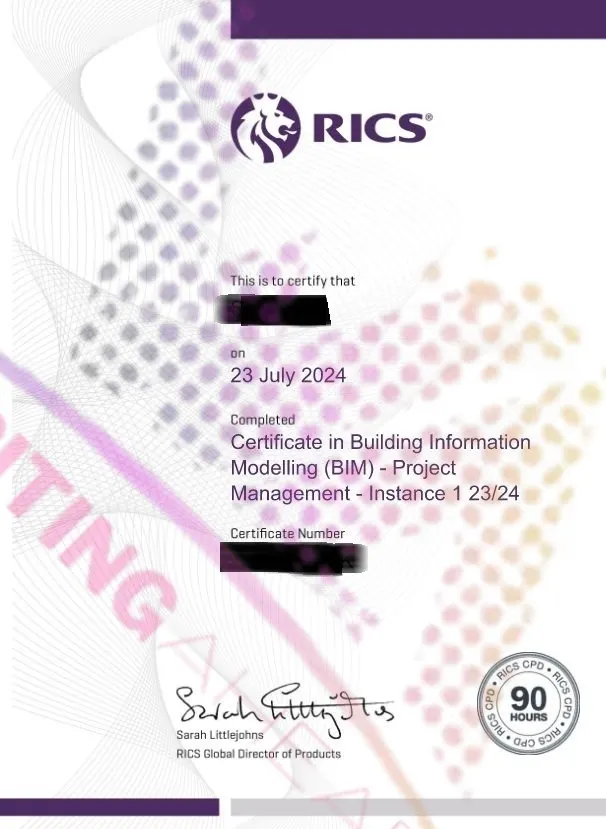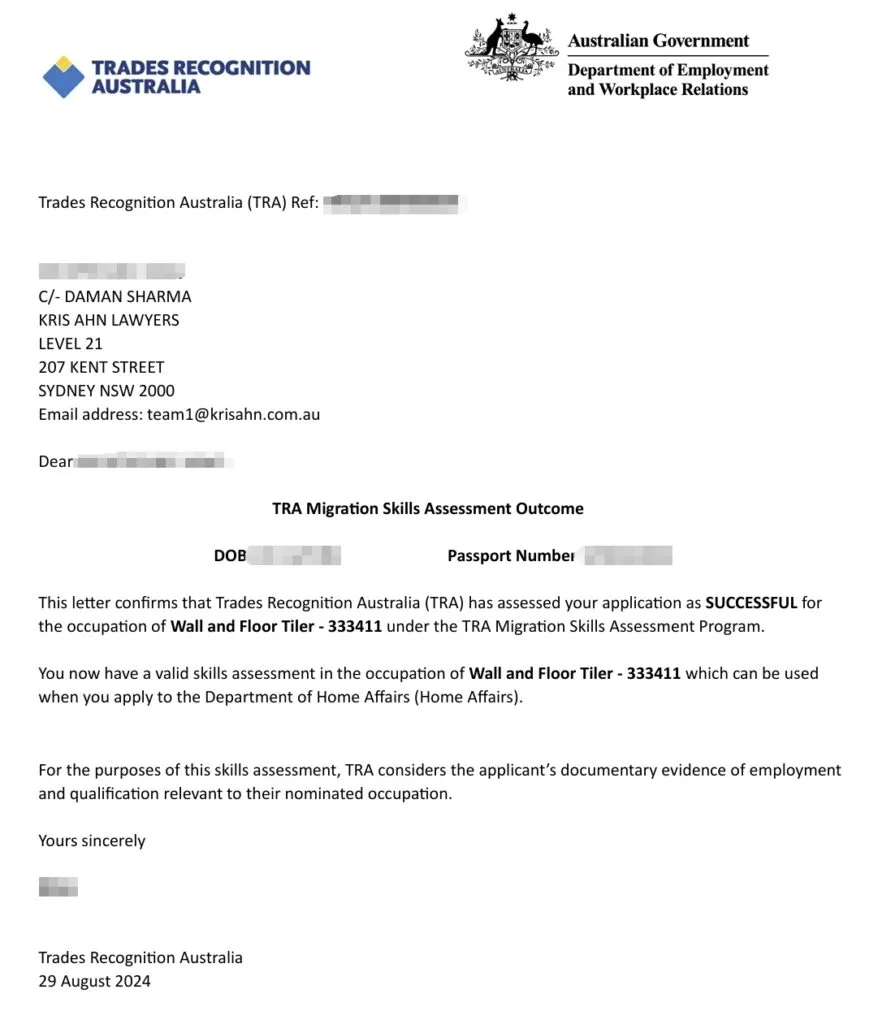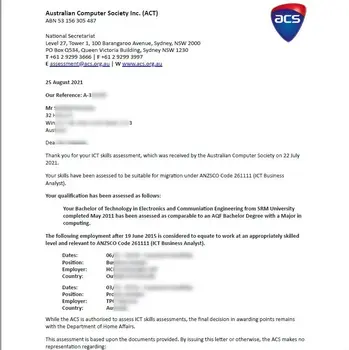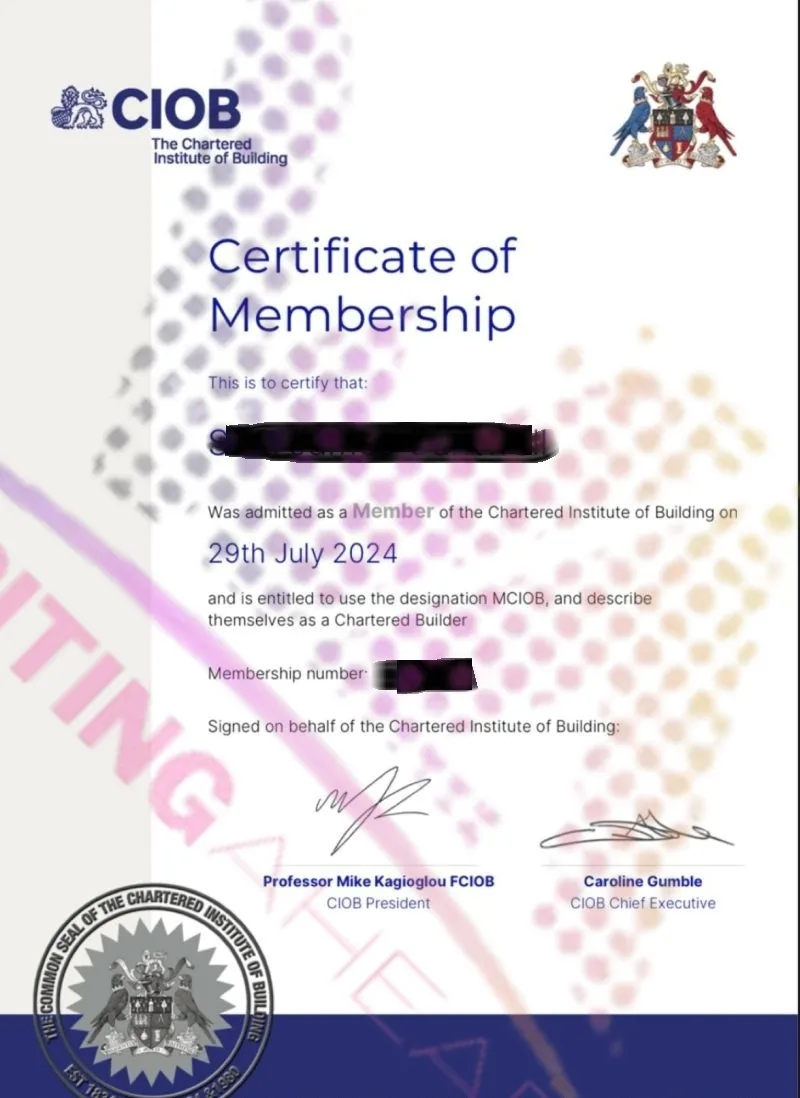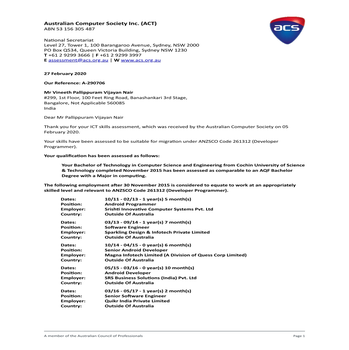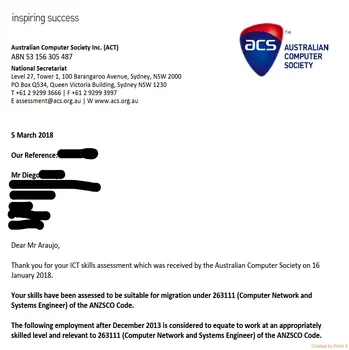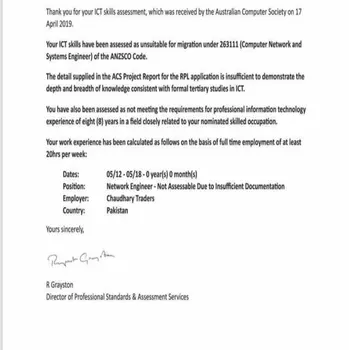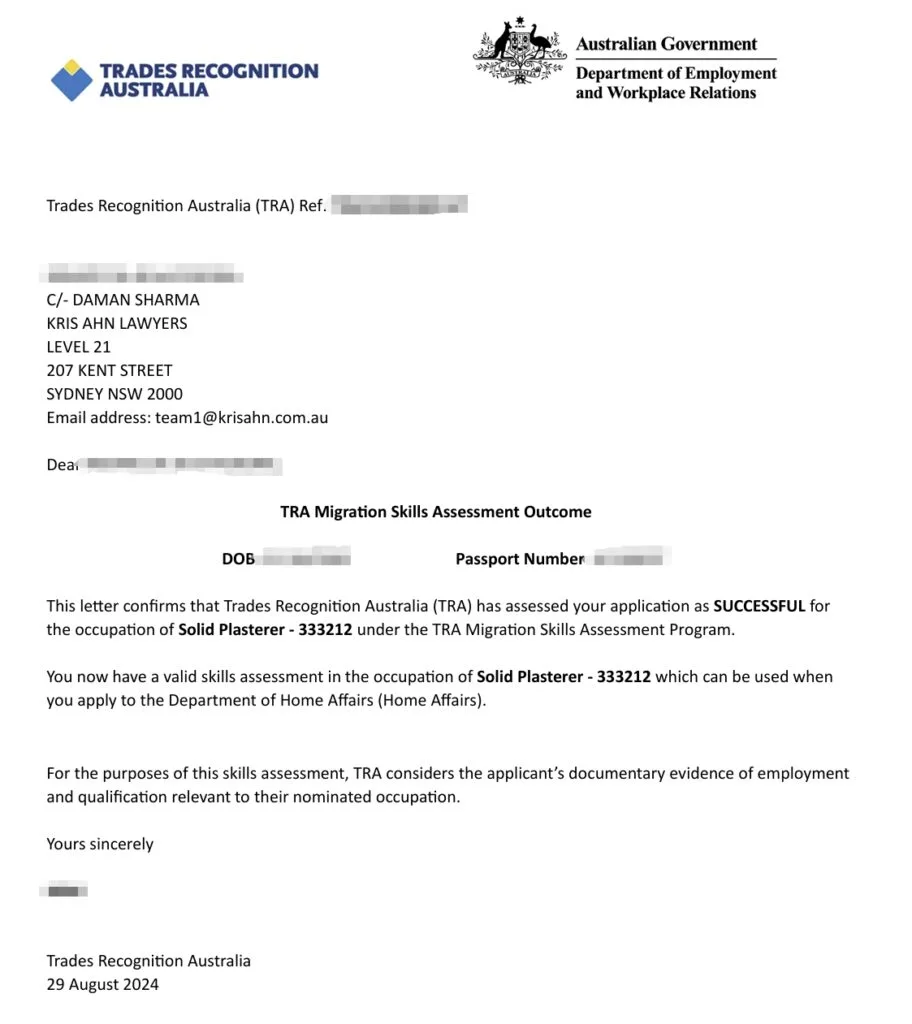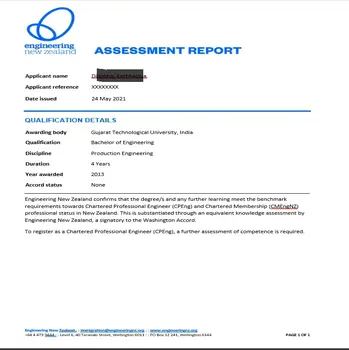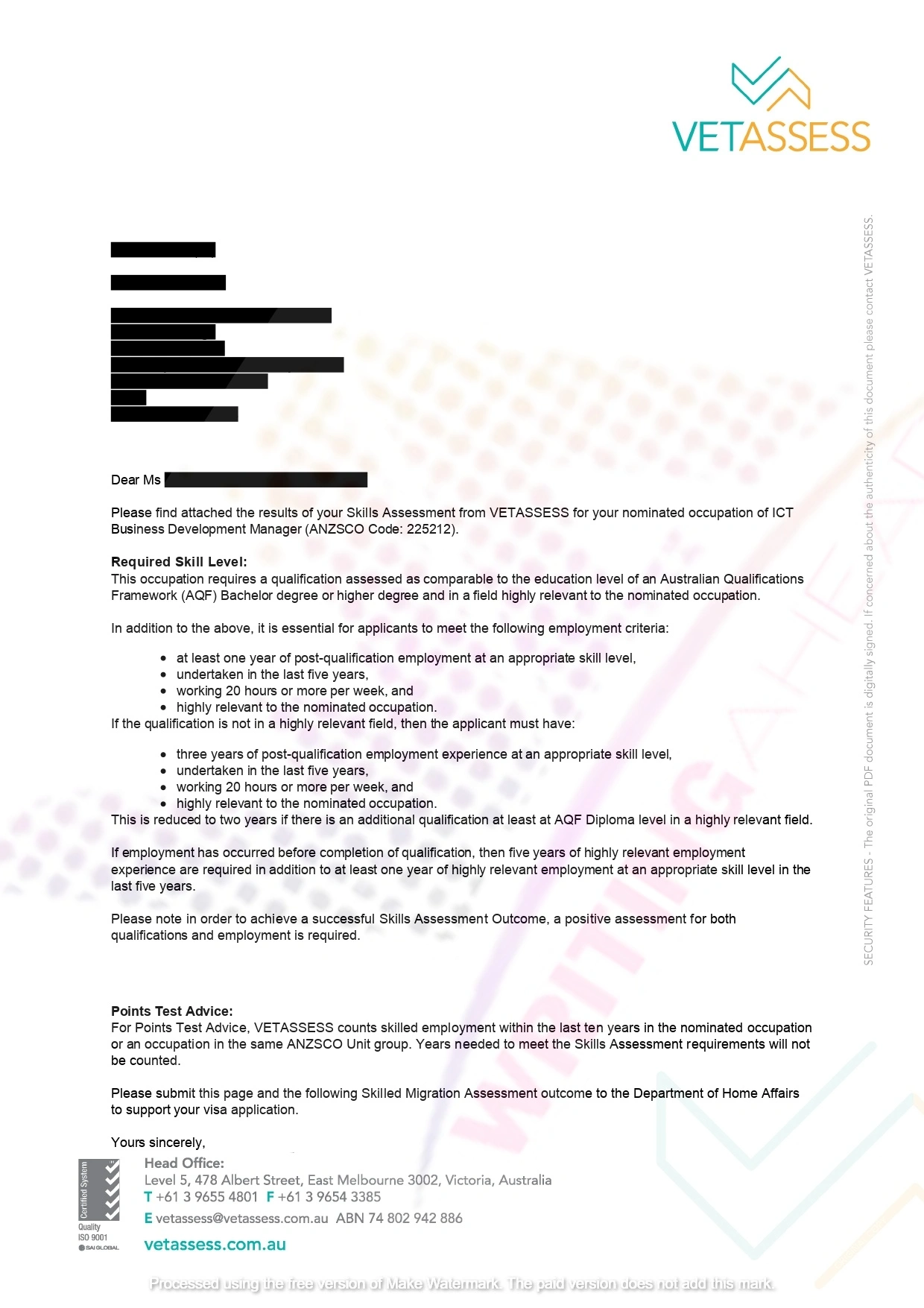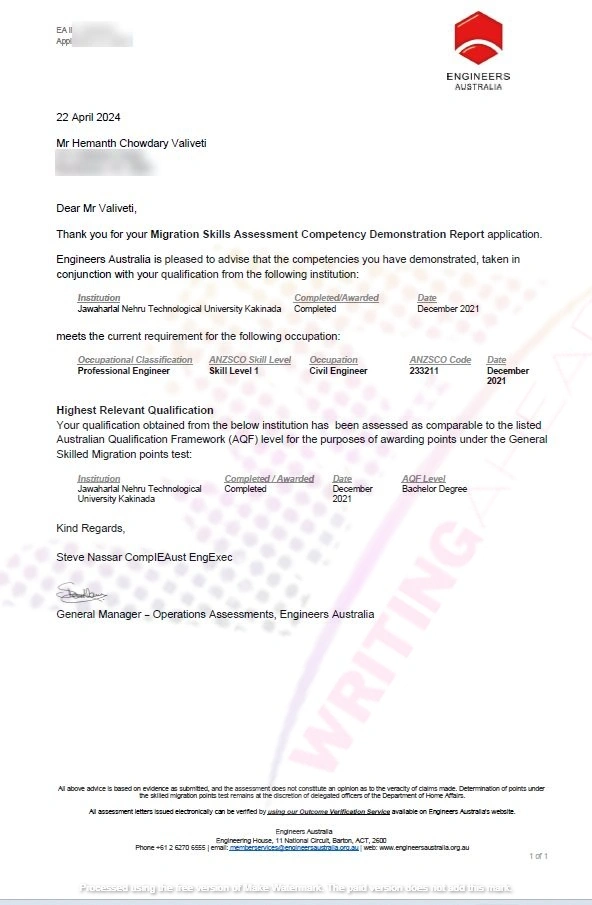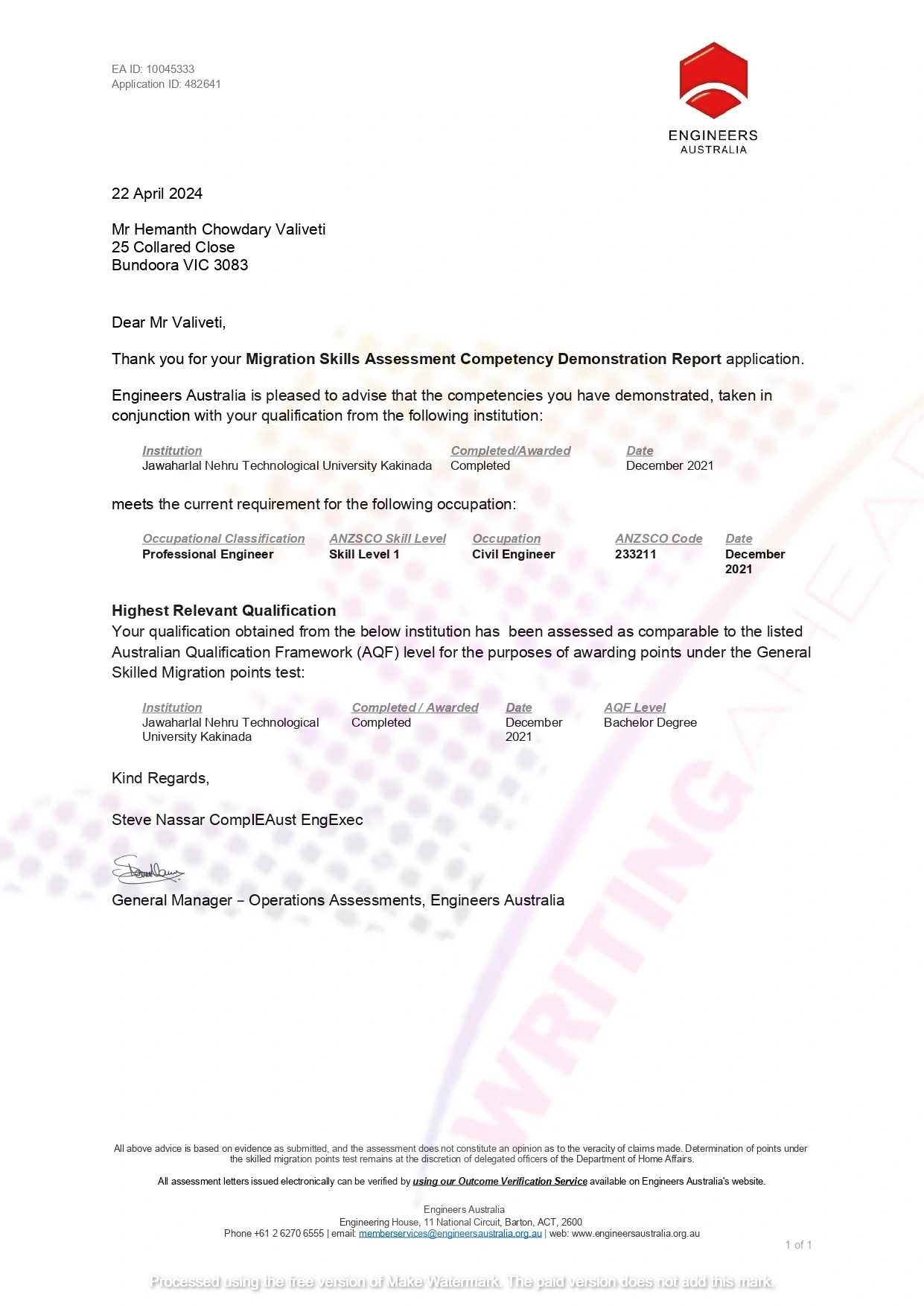What is Career Episode?
A Career Episode is a key component of the CDR Report, used by engineering bodies such as Engineers Australia to assess migration competence It is a detailed and structured statement of the engineer’s qualifications, skills and and experience in their business career Displays in context.
Each job description typically focuses on a specific project or technical project that you worked on. It focuses on your role, the challenges you face, the application of technical problem solving skills and the results of your work.
The main elements of a Career Episode job description are:
| Project / Job Description: |
A detailed description of the project or project you worked on, including background information, objectives and context. |
| Your Role: |
A description of your specific responsibilities and contributions to the project, including the skills and knowledge you applied. |
| Engineering Application: |
How you applied your engineering skills, techniques, and techniques to solve problems or achieve project objectives. |
| Outcome: |
The outcome or accomplishment of the project and its impact on the team, organization, or community. |
Engineers must write three job descriptions, each relating to a different type of professional work or experience that relates to their many abilities. This statement is used to assess a person’s technical skills and knowledge according to Australian standards.
Importance Of Career Episode Report in CDR
Career Episode Reports (CERs) are important for many reasons, especially for engineers wishing to emigrate to countries such as Australia who require such reports for skills assessments by professional bodies such as Engineers Australia Basic Reasons for Employment Issues Reporting is important as follows:
- Skills Assessment: Career Episode Reports are an important component of your CDR, which must be submitted to technicians to demonstrate that their technical skills and knowledge comply with Australian Standards, This report describes how an applicant works is able to apply technical skills and knowledge in a professional environment .
- Migration Requirements: Career Episode Report are a must for engineers looking to relocate and work in countries like Australia and obtain a skilled immigration licence. Without an accurate assessment, the migration process cannot proceed.
- Professional Recognition: Through detailed descriptions of their technologies and applications, engineers can demonstrate their technical and professional skills. This not only aids immigration but also promotes acceptance within the Australian labor force.
- Career Opportunity: The well thought out job posting reveals key employment opportunities within the engineering sector within Australia. Individuals are recognized as professional engineers, often a prerequisite for many high-tech jobs.
- Reflection and Self-Assessment: Writing Career Episode Reports encourages engineers to reflect on their work experience and reflect on their skills, challenges and achievements. This reflective process can be useful for personal and professional development.
- Documentation of Experience: Career Episode Report provides a convenient way to record technical experience and great achievements. These documents can be useful in the future for job applications, promotions, and obtaining licenses or certifications in different countries.
Career Episodes report an important tool for engineers to validate their skills and productivity, which is important for migration, employee recognition and career growth in a competitive industrial environment
Are you interested in tips for mapping your Career Episodes to Summary Statement? - Your Key to Success in Australia's Engineering Landscape! 💯
Most Frequent Errors in Career Episode Writing for CDR
Writing Career Episode for a CDR can be a daunting task, especially for engineers aiming to meet the stringent requirements set by Engineers Australia Some mistakes applicants make the profession typically consumes in their employment settlements:
Most Common Mistakes Made by Students When Writing Career Episode
|
Mistake |
| Lack of specifics |
Many engineers fail to provide specifics about their roles and responsibilities in the jobs they cover. It is important to be clear about what you have done yourself, and to emphasize your own contribution by using a dynamic voice and first-person narrative. |
| Less Technical Detail |
Demonstrate how technical knowledge and skills are applied to a business case. Engineers often do not include enough technical explanations or fail to explain how they applied engineering principles to solve problems. |
| Method not to follow |
Engineer Australia provides specific guidelines on how business cases should be formatted, including sections such as introduction, background, individual technical assignments and summaries If they deviate from that format this may lead to a negative assessment of CDR. |
| Overemphasis on Team Activities |
Although it's important to communicate cohesion, focusing too much on team development can diminish your individual technical performance Reviewers need to hear your role specifically under, not only the outcome of the project. |
| Failure to Address All Competency Elements |
Engineers Australia has defined areas of competence that must be addressed in employment contexts. Missing these elements or not matching the case can lead to a failed analysis. |
| Poor Language and Presentation |
Grammatical errors, vague wording, and poor formatting can complicate reporting and negatively affect analysis. The CDR must be professionally transcribed and error-free. |
| Too Long or Too Short |
Each Career Episode should be comprehensive enough to cover important skills but concise enough to interest the reviewer Overly long or too short statements can potentially carry information which is important for good children. |
| Repetition of Information |
Some candidates repeat the same information in multiple posts, which may indicate that their technical experience is not extensive. Each article should relate well to tasks or activities. |
| Failure to Demonstrate Problem-solving skills |
Engineers must demonstrate how innovative solutions and technical judgment were applied to complex problems. Neglecting to define these aspects can lead to weak reporting. |
| Using Technical Jargon Without Explanation |
Although technical information is important, using too many rarely understood words or acronyms can confuse researchers. It is important to balance technical accuracy and clarity. |
Avoiding these mistakes requires careful preparation, attention to detail, and frequent feedback from others who have been successful in the CDR process A well-prepared business report makes it more likely to leak good skills assessment results.
5 Tips to Avoid Career Episode Rejection
Avoid Job Case Rejections by Adhering to Originality, Relevance, Technical Love and Compliance with Engineers Australia Guidelines By demonstrating your individual contribution, meeting all required skills and presenting a clear, concise and well-organized for it so you can increase the chances of giving a CDR submitted a complete heart.
- Follow the Engineers Australia guidelines: Follow the policies and procedures outlined in the MSA manual.
- Identify related tasks: Choose projects that align with your technical discipline and demonstrate core competencies.
- Focus on the basics: Write unique stories based on your own experiences, and avoid writing from templates or models.
- Proofread and Edit: Make sure your job description is flawless, clear and well-written.
- Seek Professional Help: Consider providing CDR documentation or inspection services to ensure compliance and quality.
Types of Career Episodes and Their Characteristics
Career Episodes is a key component of the CDR used by Engineers Australia and similar organizations to assess the professional skills and competency of engineers seeking professional roles . Here are the various Business Cases and their characteristics.
1. Career Episode Based on Academic Projects
Characteristics:
- It focuses on projects you have completed as part of your undergraduate or graduate studies.
- It is generally used by recent graduates or engineers with little professional experience.
- Focuses on the application of theoretical skills, research skills, and engineering principles in an academic setting.
Key Elements:
- A description of the goals, scope, and results of the project.
- Your own contributions such as design, research, or experimentation.
- Use of technical equipment, software, or analytical methods.
- Demonstration of innovation, problem solving and adherence to academic standards.
Example Topics:
- Final year project or capstone project (e.g. design of a solar-powered water pump system).
- Research for a dissertation or dissertation (e.g. optimization of composite materials for aircraft structures).
- Laboratory-based instruction involving simulations, experiments, or models.
Best for:
- Fresh graduates or engineers with little work experience.
2. Career Episode Based on Professional Work Experience
Characteristics:
- Focus on technical projects you actually completed in your career.
- Focuses on the practical application of engineering principles, teamwork, and problem solving in business.
- It often involves adding great projects or great impact to showcase your expertise.
Key Elements:
- A description of the purpose of the project, your role and responsibilities.
- The challenges they faced and how you overcame them through technical means.
- Detailed knowledge of equipment, software, statistics, and procedures.
- The outcome is the impact your work has on the business or organization.
Example Topics:
- Lead the design and implementation of water treatment plants.
- Installation of renewable energy systems for the maintenance of a commercial building.
- Development of automation techniques to increase productivity.
Best for:
- Engineers with extensive professional experience in their field.
3. Career Episode Based on Internship or Training
Characteristics:
- Focuses on hands-on experience gained through internships, cooperative programs, or professional training.
- It focuses on the shift from theoretical knowledge to practical application.
- Demonstrate your ability to work under supervision, be flexible in a work environment, and contribute effectively.
Key Elements:
- Specific tasks or activities completed during an internship or training.
- Use of tools, techniques, or technical concepts.
- Problem solving, teamwork, or academic achievement in training.
Example Topics:
- Internship project where you designed an optimized HVAC system for a residential building.
- Assist in the design and evaluation of circuit boards during the development of training programs.
- Conducting a safety assessment at a construction site as part of the job training.
Best for:
- Engineers at the beginning of their career or those who want to diversify their career story.
4. Career Episode Based on Volunteer or Freelance Work
Characteristics:
- It focuses on technical projects you have completed as a volunteer or freelancer.
- It highlights your ability to support meaningful projects outside of traditional business backgrounds.
- It shows innovation, energy efficiency and adaptability.
Key Elements:
- The scope and purpose of volunteering or self-employment.
- How did you use your technical skills to achieve the project goals.
- The unique challenges and solutions you implemented.
Example Topics:
- Volunteer to plan and build water distribution systems for rural communities.
- Freelancing to create CAD models for small businesses.
- Developing a mobile app to track fitness as part of a charity project.
Best for:
- Engineers with a variety of experiences or those who want to expose non-traditional work.
5. Career Episode Based on Research and Development Work
Characteristics:
- Focuses on innovation or research involving research and development.
- Emphasize creativity, technical skills, and the ability to push boundaries in technology.
Key Elements:
- Description of the research problem, objectives and methodology.
- Description of experiments, models, or experimental studies.
- Results, conclusions, and technical assistance.
Example Topics:
- Innovative thermal insulation in buildings.
- Evaluation of advanced battery technology for electric vehicles.
- Design and testing of a robotic arm for industrial production.
Best for:
- Engineers involved in cutting-edge research or educational activities.
6. Career Episode Based on Multidisciplinary or Collaborative Projects
Characteristics:
- Many engineering disciplines focus on projects that require collaboration or collaboration with other professionals.
- Focuses on teamwork, communication and leadership skills.
Key Elements:
- Your role in a multidisciplinary team and your contribution.
- Challenges in integrating disciplines.
- Results through collaborative efforts.
Example Topics:
- Working with government and environmental engineers to design smart city infrastructure.
- Collaborating with IT experts to develop an IoT-based system for workplace automation.
- Lead a team of engineers and architects to design a sustainable office building.
Best for:
- Experienced engineers in cross-functional teams.
7. Career Episode Based on Entrepreneurial or Independent Projects
Characteristics:
- Focus on tasks that you do on your own or as part of your projects.
- It focuses on entrepreneurship, innovation and self-reliance.
Key Elements:
- Project goals, challenges, and how you did the project on your own.
- The tools, materials and techniques you use.
- The success of your business is its impact.
Example Topics:
- Starting a business to design and sell energy-efficient products.
- Development of software tools for efficient construction management.
- Design and manufacture of drones for agricultural use.
Best for:
- Engineers with business experience or independent business departments.
In preparing Career Episodes, it is important to choose projects or projects that best reflect your technical skills and expertise as needed by the research agency Prepare each case so that it clearly states your individual contributions and accomplishments by aligning the skill elements necessary for successful research.
Are you interested in tips for mapping your Career Episodes to the Summary Statement?🎯
Formatting Styles Required in Career Episode Writing for CDR
It is important to adhere to specific formatting style and guidelines when preparing a Career Episodes for a CDR work statement for submission to Engineers Australia or similar research bodies There are important formatting requirements to follow.
1. Document Settings
- Font: Use a clear and readable font such as Arial or Times New Roman.
- Font size: Generally 11 or 12 point is recommended in the main text.
- Line spacing: Use a single spacing for your text.
- Dimensions: Make sure all sides are at least 2.54 cm (1 inch).
2. Structure
Every business case should be broken down into four main parts:
- Introduction (approximately 100 words): This section should include the date and duration of the incident, the location of the experience, and the name of the organization involved.
- Background (200-500 words): This section should provide the context in which you were studying or working. It should describe the nature of the job, the goals of the job, and your specific job. Indicate your position and job description.
- Personal Engineering Assignment (500-1000 words): This is the main body of your talk, in which you explain what you did and how you did it. Highlight your roles and responsibilities, the technology strategies you used, and how you worked with other team members.
- Summary (50-100 words): Summarize your overall experience, project results, and personal contributions to the project’s success.
3. Writing Style
- Narrative: Write in the first person singular, using phrases such as "I planned...", "I researched...", etc. to emphasize your role and contribution .
- Clarity and Accuracy: Be clear and precise in describing your technical activities. Avoid overly technical language that non-experts don’t understand.
4. Technical Details
- Include specific technical information and data, such as statistics, coding, model design, etc. as evidence of hands-on involvement in technical projects
5. Language and Grammar
- Professional tone: Maintain a professional voice throughout the document.
- Correct grammar and spelling: Make sure the writing is grammatically correct and there are no spelling mistakes. Proofreading is important to avoid rejection due to bad language.
6. Non-technical Information
- While the focus should be on technical skills, also discuss project management, leadership roles and collaborative efforts in teams when appropriate to demonstrate your skills.
7. Length
- Each job essay should ideally be 1000-2500 words in length. It is important to be concise but detailed to best convey your contributions and qualifications.
8. Confidentiality
- Keep a focus on privacy and avoid disclosing sensitive or proprietary business or technical information.
These policy and design guidelines are critical to creating a clear, professional, and effective CDR. Compliance with these requirements will give your application serious consideration and proper consideration by Engineers Australia or the relevant professional body.
How many Career Episodes do I need to include in my CDR?
You must include three job references for the CDR required by Engineers Australia. Each essay should describe a different aspect of the job or your technical experience, and demonstrate your technical skills and expertise in a variety of use cases
How any photos to include in each career episode?
You are not required to include any photographs from your Work Profile with the CDR for Engineers Australia. The focus should be on providing a comprehensive statement of your technical skills, knowledge and expertise through a written description of your technical work and projects. Stick to written descriptions to convey your role and accomplishments in each project.
What kind of projects or experiences should I choose for my Career Episodes?
You should choose projects or experiences that demonstrate your technical skills and knowledge related to your chosen field. These may include design projects, research programs, technical analysis, problem solving activities, or other technical activities.
How should I present my Career Episode Report?
Your career report should be written in the first person, providing a detailed description of your technical activities and accomplishments. It should be well-structured, concise, and free of grammatical errors or spelling mistakes. Additionally, you should include appropriate technical drawings, diagrams, or plans to support your case.
How should I reference technical standards or codes in my Career Episode Report?
Engineers should refer to the relevant technical standards, rules and procedures applicable to their engineering work in their performance reports. Quotations should be provided in accordance with accepted technical quotations for that reference.
What should I do if my Career Episode Report is not accepted by Engineers Australia?
If Engineers Australia does not accept your Career Episode Report, you may need to review and resubmit your report based on their feedback. It is important to thoroughly review their information and address areas of concern to ensure your report meets the required standards.
How should Career Episode Reports be structured?
Career Episode Reports should follow a structured format, with an introduction providing background information, a detailed description of the technical project or project, and a conclusion summarizing the main features and results Should engineers also include appropriate engineering drawings, calculations, and other supporting documentation as appendices.
Is career episodes needs to include calculations?
No, the CDR does not have to include an estimate of Business Content. Include them only when necessary to demonstrate your technical skills and directly related to your own contribution and problem-solving skills on the job.
How long should a Career Episode be?
There is no strong word limit on business cases, but they are generally expected to be between 1,000 and 2,500 words each. Engineers should provide sufficient information to adequately demonstrate their technical skills without exceeding the recommended length.
🛡Accelerate Your Engineering Career: Access Expert Career Episode Report Help - Let's Propel Your Professional Journey Forward with Precision and Proficiency!


